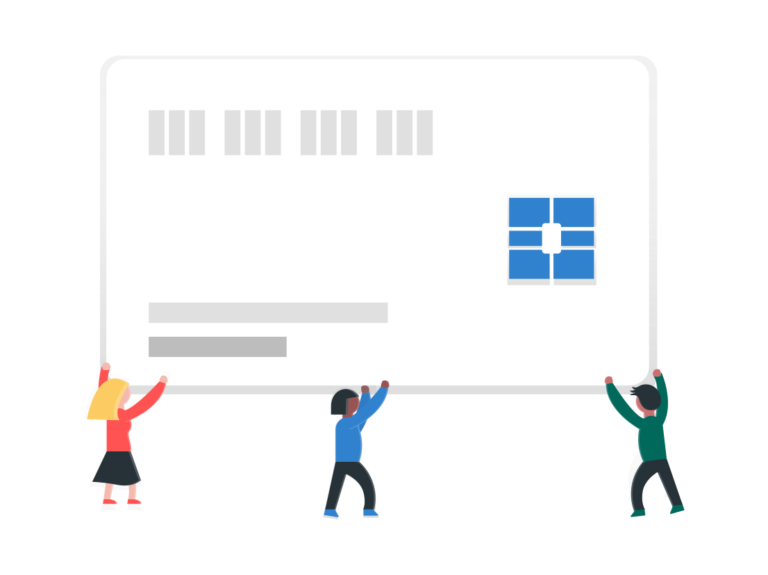Why I Applied for a Credit Card on my 18th Birthday

The notion credit cards and young adults shouldn’t mix is misguided. Unlike many of the other opportunities adulthood brings—e.g. cigarettes and lottery tickets—credits cards can be a powerful resource in your personal finance tool belt. They’re the easiest way to build credit, enhance security against fraud, and can even provide a discount on every single thing you buy.
First, I’ll address the controversy. A common criticism of credit cards is the risk of racking up debt. When you don’t pay off your balance each month, you are charged interest on that debt. It’s well known that credit cards have very high-interest rates. What is less well known is that when used responsibly, you will never pay any interest. Ever. In fact, I don’t even look at the interest rates when I’m comparing two cards.
Additionally, credit card companies have long been known to target young and uninformed consumers. Marketing campaigns with misleading offers used to be common on college campuses. Congress even passed legislation in 2009 to prevent it. Thankfully, none of this matters for you. By the end of this article, you’ll understand more about credit cards than most adults and see why the benefits outweigh the risks.
To understand why a credit card may be helpful, let’s first cover how credit cards work.
Every transaction with a credit card is paid for by the bank issuing the card. This issuing bank works with a company like MasterCard or Visa to brand the card and process payments. At the end of the month, you receive a statement listing the details for every purchase you made in the previous 30 days. The statement includes the total amount you now owe to the issuing bank. Here’s the important part: you have an additional month from the date you receive the statement to pay the bill before you are charged any interest or fees. To avoid interest, pay on time. It really is that simple.
Almost half of American adults don’t follow this rule. By not paying on time, or not paying the full amount on the bill, they carry balances on their credit cards. (Don’t be fooled, balance is just a nicer word for debt.) The balance is what interest is charged on. If you have a balance of $1000, and an interest rate of 20%, you’ll owe $200 a year just for the privilege of carrying the balance. Most credit cards charge compound interest. This means that unpaid interest charges get added to the balance and you pay interest on top of interest. Paying on time and in full is critical for using a credit card responsibly.
If you do these two things consistently, you’ll unlock a whole world of benefits and perks.
Building credit:
In this context, the word ‘credit’ has two meanings. It refers to the actual money the issuing bank spends on your behalf, and it refers to your ability to pay back debts. This ability is measured using a credit score. A higher score means better deals on financial products and services. Most importantly, a credit score is necessary for many common actions in young adulthood. You may need one to rent an apartment, buy a house, receive a car loan, or even get a job.
I’m afraid of debit cards:
The benefit of security is uncomplicated but critical. Credit cards are inherently safer than both cash and debit cards. If your wallet gets lost or stolen, the cash inside is gone forever. With a credit card, just call the number on the back. They will immediately freeze your card, reverse any fraudulent transactions, and send you a new card with expedited shipping.
Debit cards are a different story. Your bank may freeze and replace your debit card, but getting your money back can be difficult. Because debit cards are directly attached to your bank, you won’t have any money to spend if a thief drains your account. Personally, I avoid using my debit card whenever possible. If you want to learn why you can read about Why I’m Afraid of Debit Cards.
Perks:
Credit card perks are endless. There are cards that give you over $1000 in travel points just for signing up. Some cards provide insurance for things like cell phones and rental cars. Almost all cards have some form of cash back, which is essentially a discount on your purchases. Usually, better perks means higher fees, but often the fee is a low price to pay compared to the benefits. There are also many great cards available with no fee at all.
This article is here to arm you with the knowledge to make the best decision for yourself. I have used credit cards to build my credit, protect myself from fraud, and earn cash back and other perks. If I had carried a balance, the interest charges would have made these benefits much less valuable. Credit cards are only worthwhile when used responsibly.






